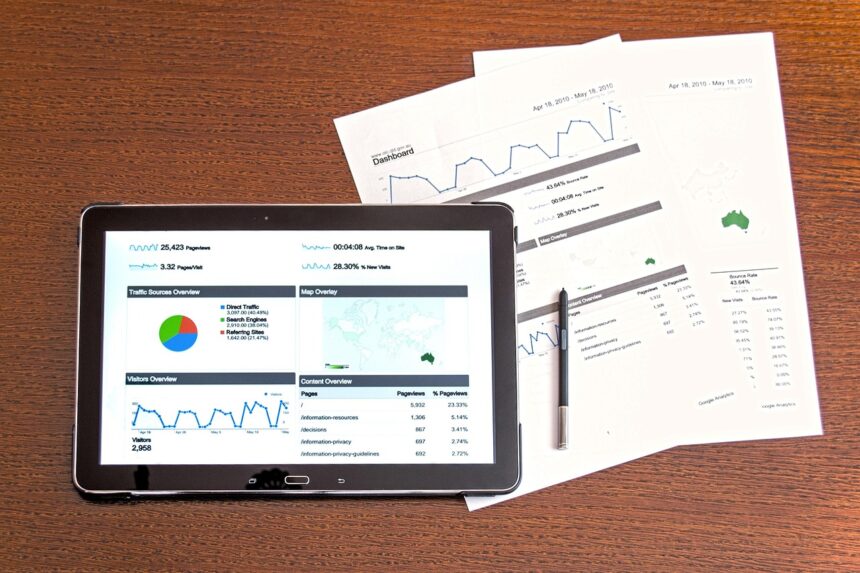Africa stands at the threshold of a historic transformation in 2025. With a population projected to surpass 1.5 billion people, a rapidly expanding middle class, and some of the world’s fastest-growing economies, the continent is redefining its role in the global economy. From Lagos to Nairobi, Cape Town to Cairo, Africa’s innovation hubs are buzzing with energy, fueled by young entrepreneurs, bold startups, and increasing flows of investment.
- Macroeconomic Overview of Africa in 2025
- Sector Analysis: Africa’s Growth Industries in 2025
- Fintech & Digital Economy
- HealthTech & AgriTech
- HealthTech
- AgriTech
- Artificial Intelligence & Emerging Tech
- AI in Industry and Governance
- Emerging Technologies Beyond AI
- Investment and Market Trends
- ClimateTech & Sustainability
- Clean Energy and Renewable Solutions
- Sustainable Agriculture and Resource Management
- Circular Economy and Waste Management
- Investment Trends in ClimateTech
- Conclusion
The year 2025 marks a critical point for Africa’s development story. While global economies face slowdowns and uncertainties, Africa is emerging as a frontier of growth, resilience, and opportunity. Technology adoption is accelerating, digital payments are booming, renewable energy is taking root, and industries like healthtech, agritech, and artificial intelligence are proving that Africa is not just catching up but shaping the future of innovation.
Market reports have never been more crucial for decision-makers. For entrepreneurs, they reveal where the biggest opportunities lie. For investors, they highlight high-growth sectors and emerging markets worth exploring. For governments and policymakers, they provide the insights needed to craft policies that encourage sustainable growth.
In this comprehensive Market Report Africa 2025, Volturaa examines the state of Africa’s economy, sectoral opportunities, investment trends, and the challenges and risks ahead. From fintech to climate tech, AI to agritech, this report provides a 360-degree view of Africa’s future — a continent rising not only as a hub of resources but as a hub of creativity, technology, and global leadership.
Macroeconomic Overview of Africa in 2025
Africa’s economy in 2025 is projected to remain among the fastest-growing in the world, with several regions outpacing global averages despite ongoing global headwinds. According to recent projections by the African Development Bank (AfDB) and World Bank, the continent’s overall GDP growth is expected to hover around 4–4.5%, compared to a global average of around 2.9%. This resilience is underpinned by youth-driven innovation, digital transformation, trade reforms, and increasing diversification beyond resource-dependent industries.
Regional Growth Trends
- East Africa continues to lead the continent in growth, fueled by Kenya, Tanzania, Rwanda, and Ethiopia. Investments in digital infrastructure, renewable energy, and financial inclusion are driving momentum.
- West Africa remains an engine of growth, with Nigeria’s fintech boom, Ghana’s diversification, and Côte d’Ivoire’s agricultural exports supporting expansion. However, regional instability and inflation remain challenges.
- Southern Africa faces a more mixed outlook. While South Africa is undergoing reforms to stabilize its economy, countries like Zambia, Mozambique, and Botswana are benefiting from mining and renewable energy projects.
- North Africa is positioning itself as a manufacturing and logistics hub, with Egypt and Morocco leading in industrialization and renewable energy adoption.
Urbanization & Demographics
Africa’s youthful population, with a median age of under 20, continues to be both a challenge and an opportunity. By 2025, more than 600 million Africans will live in urban centers, creating demand for jobs, infrastructure, housing, and digital services. This demographic dividend, if harnessed through education and job creation, could make Africa the world’s largest labor force by 2035.
Trade & Integration
The African Continental Free Trade Area (AfCFTA), now in active implementation, is one of the most significant drivers of growth in 2025. By eliminating tariffs and reducing trade barriers across 54 countries, AfCFTA is creating a $3.4 trillion market opportunity, boosting intra-African trade and attracting global investors. Combined with advances in logistics and digital payments, Africa is on its way to building a more interconnected, competitive economy.
Digital Transformation
Digital adoption is the backbone of Africa’s 2025 growth story. Internet penetration, mobile money, and digital-first startups are reshaping industries from agriculture to retail. With over 500 million internet users and widespread smartphone adoption, Africa is leapfrogging traditional barriers and building a digital-first economy at scale.
In summary, Africa’s macroeconomic outlook in 2025 is shaped by youth, trade, and technology. While challenges remain — including infrastructure gaps, policy uncertainty, and external economic shocks, the foundation for sustained growth is stronger than ever.
Sector Analysis: Africa’s Growth Industries in 2025
Fintech & Digital Economy
Fintech remains the undisputed champion of Africa’s innovation story in 2025. With over 400 million unbanked adults across the continent, fintech startups are filling critical gaps in financial inclusion through mobile money, digital lending, and payment solutions.
Countries like Nigeria, Kenya, Egypt, and South Africa are leading this transformation. Nigeria’s Paga, Flutterwave, and Paystack continue to expand digital payment ecosystems, while Kenya’s M-Pesa remains a model of mobile money innovation globally. Egypt’s fintech startups are gaining traction by combining digital wallets with e-commerce and logistics solutions.
The digital economy is also expanding rapidly beyond payments. Neobanks, insurtech platforms, and blockchain-based services are reshaping how Africans access financial products. Cross-border transactions, once expensive and slow, are now becoming seamless thanks to startups building on blockchain and Web3 solutions.
According to estimates, Africa’s fintech market could exceed $65 billion by 2030, but 2025 is already a turning point. Venture capital funding remains concentrated in fintech, accounting for more than 40% of all startup investments in Africa. This funding is driving both product innovation and regional expansion.
At the same time, governments and central banks are embracing regulatory frameworks to encourage growth while protecting consumers. For example, Nigeria’s Cashless Policy and Kenya’s Digital Credit Regulations are creating safer, more transparent ecosystems.
The fintech and digital economy revolution is not just about convenience, it’s about economic empowerment. By enabling millions of Africans to save, borrow, invest, and transact securely, fintech is unlocking new opportunities for individuals, businesses, and entire economies.
HealthTech & AgriTech
Africa’s health and agricultural sectors are undergoing a technological renaissance in 2025. HealthTech innovations are transforming the delivery of healthcare across urban and rural areas, while AgriTech solutions are enhancing productivity, sustainability, and food security.
HealthTech
Telemedicine and AI-driven diagnostics are reshaping healthcare access in Africa. With doctor shortages in many regions, startups are deploying AI algorithms to detect diseases like tuberculosis, malaria, and COVID-19 complications from medical images or patient data. Mobile health applications, wearable devices, and digital clinics are empowering patients to monitor their health, schedule appointments, and receive consultations remotely.
Countries like Kenya, Nigeria, Rwanda, and South Africa are at the forefront. In Rwanda, the Babyl Health platform is expanding teleconsultations to rural populations, while in Nigeria, startups are integrating AI into diagnostic labs to improve accuracy and efficiency. Investment in HealthTech in 2025 is growing rapidly, with global investors taking notice of Africa’s scalable solutions for universal healthcare challenges.
AgriTech
Agriculture remains a cornerstone of Africa’s economy, employing over 60% of the continent’s workforce. In 2025, AgriTech startups are leveraging drones, IoT sensors, AI-driven analytics, and mobile apps to improve crop yields, optimize irrigation, and reduce post-harvest losses. Platforms like Twiga Foods in Kenya are streamlining supply chains from farmers to retailers, ensuring fair pricing and minimizing waste.
Climate-smart agriculture is gaining traction as farmers adopt precision farming tools and renewable-powered irrigation systems. Investment in AgriTech is increasing, with venture capital flowing into startups that can demonstrate measurable impact on productivity and sustainability.
By integrating HealthTech and AgriTech, Africa is not only improving quality of life and economic resilience but also building sectors that can scale globally, creating jobs and driving innovation in both public and private spheres.
Artificial Intelligence & Emerging Tech
Artificial Intelligence (AI) and emerging technologies are becoming key drivers of Africa’s economic and social transformation in 2025. From finance and healthcare to logistics and government services, AI is enabling smarter decision-making, efficiency, and innovation across the continent.
AI in Industry and Governance
In the financial sector, AI-powered credit scoring and fraud detection systems are helping fintech companies expand access to loans while mitigating risk. Healthcare providers are increasingly using machine learning to analyze medical data, predict disease outbreaks, and recommend personalized treatments. Governments are leveraging AI for urban planning, traffic management, and public service delivery, improving efficiency and citizen engagement.
Startups across Africa are adopting machine learning, natural language processing (NLP), and predictive analytics to solve local problems at scale. For instance, AI platforms in Nigeria and Kenya are analyzing consumer behavior for businesses, helping SMEs optimize operations and marketing strategies.
Emerging Technologies Beyond AI
Africa is also embracing other emerging technologies such as blockchain, Internet of Things (IoT), drones, 5G, and augmented/virtual reality (AR/VR). Blockchain applications are being deployed in supply chain management, digital identity, and secure financial transactions. IoT devices are improving agriculture, energy distribution, and logistics, while drones are being used for medical deliveries, crop monitoring, and infrastructure inspection.
Investment and Market Trends
The AI and emerging tech ecosystem is attracting growing venture capital and international collaboration. African startups are not only serving local markets but also exporting technology solutions globally, positioning Africa as a hub for innovation rather than just a consumer of technology.
By 2025, AI and emerging technologies are not only enabling operational efficiency but also reshaping Africa’s innovation landscape, creating opportunities for entrepreneurs, investors, and policymakers to participate in the continent’s rapid transformation.
ClimateTech & Sustainability
Climate change and environmental sustainability have become top priorities for Africa in 2025, driving innovation in clean energy, waste management, and sustainable agriculture. ClimateTech startups are emerging across the continent, providing solutions that address environmental challenges while creating economic opportunities.
Clean Energy and Renewable Solutions
Africa is embracing renewable energy at an unprecedented pace. Solar, wind, and hydropower projects are scaling rapidly, providing electricity to millions of previously underserved communities. Startups and governments are deploying off-grid solar systems, smart microgrids, and battery storage solutions, making energy access more reliable and sustainable. Countries like South Africa, Kenya, and Morocco are leading in renewable energy adoption, attracting investment from both local and international sources.
Sustainable Agriculture and Resource Management
ClimateTech also plays a pivotal role in agriculture. Farmers are leveraging precision farming, soil sensors, AI-driven weather forecasts, and smart irrigation systems to adapt to changing climate conditions. These technologies increase crop yields, reduce water usage, and help mitigate the effects of droughts and floods, improving food security across the continent.
Circular Economy and Waste Management
Innovative startups are turning waste into opportunity. Companies are developing solutions to recycle plastics, reduce electronic waste, and convert agricultural by-products into energy. This not only addresses environmental concerns but also creates jobs and drives local economic growth.
Investment Trends in ClimateTech
The ClimateTech sector is gaining momentum in 2025, with venture capital, government grants, and impact investing fueling the growth of startups that demonstrate both sustainability and scalability. Investors are increasingly attracted to projects that deliver measurable environmental and social impact while remaining commercially viable.
Africa’s ClimateTech revolution is not just about sustainability — it represents a strategic economic opportunity, positioning the continent as a leader in innovative solutions to global climate challenges. By 2025, ClimateTech is proving that environmental responsibility and economic growth can go hand in hand.
Conclusion
Africa in 2025 is a continent of opportunity, innovation, and transformation. Across fintech, healthtech, agritech, AI, and ClimateTech, startups and entrepreneurs are redefining industries, bridging gaps, and creating solutions that are both locally relevant and globally competitive. The rapid adoption of technology, coupled with a youthful population and increasing investor interest, is positioning Africa as a frontier market and innovation hub unlike any other in the world.
Market reports for 2025 show that the continent’s economic growth is underpinned by digital transformation, trade integration through AfCFTA, and strategic investments in infrastructure, clean energy, and emerging technologies. Challenges remain, including regulatory hurdles, infrastructure gaps, and skills shortages, but Africa’s resilience and adaptability are evident in the innovative solutions that continue to emerge.
For investors, policymakers, and innovators, understanding these trends is critical. Africa is not simply following global technology and market trends, it is shaping them. By leveraging data, technology, and strategic partnerships, Africa can accelerate sustainable growth and create long-term impact for its citizens and the global economy.
Volturaa’s 2025 Market Report underscores a central truth: Africa’s future belongs to innovation, collaboration, and strategic foresight. The time to engage with Africa’s dynamic markets is now, and the opportunities are boundless.












